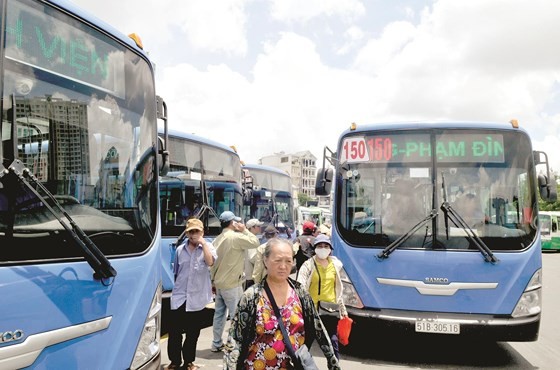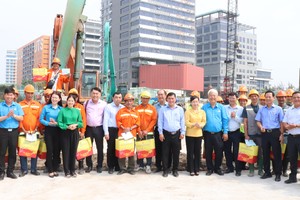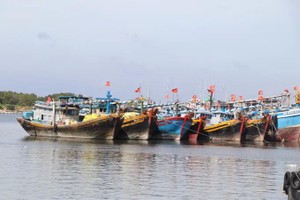
Recently, replacing diesel buses by CNG buses has brought about certain economic and environmental benefits for the city. However, at the end of May, PV Gas South JSC announced that it planned to cut by 20-30 percent of the amount of CNG supplied for the city’s buses in the remaining months of this year in order to prioritize gas supply for the electricity industry. If this case happens, the company will notify the city two hours in advance for the city to adjust bus operation plan.
Not only planning to reduce supply, earlier, the PV Gas South JSC - Dong Nai Branch also sent an urgent notice to some city-based bus companies, saying that if they do not sign new contract in which gas price is expected to be higher, the company will stop supplying fuel for them. As there is no other gas supplier, bus companies are forced to renew the contract.
The Ho Chi Minh City Management Center of Public Transport under the Department of Transport said that cutting CNG supply will possibly upset public transport operation as well as lose confidence of bus companies which intend to switch from diesel engine buses to CNG buses. The Department proposed the PetroVietnam Gas Joint Stock Corporation to instruct the PV Gas South JSC to not reduce CNG supply for buses in the city this year.
At the same time, it also proposed the PetroVietnam Gas Joint Stock Corporation to consider and report to the Vietnam Oil and Gas Group to reserve a stable amount of gas for public transport in Ho Chi Minh City at the same price for power generation.
According to the roadmap for upgrading of buses in HCMC in the period from 2018 to 2020, the city needs 3,121 new buses, of which, the number of buses using clean fuel is expected to account for 75 percent. At present, according to the Ho Chi Minh City Management Center of Public Transport, the city has 2,457 buses, of which 428 are CNG ones.
For many years, there is only one CNG supplier for buses in the city- PV Gas South JSC. Bus companies when they first started to change from diesel engine buses to CNG buses also concerned about monopoly in CNG supply. In order to ease their concerns, at the time, the city’s Department of Transport pledged that it would work with gas supplier to ensure supply. However, it is unknown why the reality has not happened as promised.
According to transport experts, the department must immediately work with the current supplier to clarify the problems. The city even needs to have an extent mechanism, seeking for two or three more gas suppliers, asking them to join so as not to be dependent on CNG supply by the PV Gas South JSC.
Meanwhile, the Ho Chi Minh City Management Center of Public Transport said that besides the PV Gas South JSC, PVGAZPROM Natural Gas for Vehicles Limited Liability Company also wants to join in supplying of gas. However, according to the plan, the company is only able to provide gas as of next year.
Transport experts said that transport companies have responded to the city’s call to use CNG buses and accepted high investment level as the prices of CNG buses are 1.5 times higher than diesel engine ones. Therefore, in long term, the city must have drastic solutions to solve difficulties for transport companies.
Regarding this issue, the Ho Chi Minh City Management Center of Public Transport said that it has collaborated with the PV Gas South JSC to upgrade and move existing CNG filling stations to more appropriate places. On the other hand, they have both agreed that there are 11 places suitable for building CNG filling stations.
The People’s Committee of HCMC has proposed the Ministry of Industry and Trade to instruct relevant units to reserve around 36 million cubic meters of CNG in 2019 and 40 million cubic meters of CNG in 2020 to provide for the city’s public transport industry. It also proposed the Ministry of Industry and Trade and the Ministry of Finance to consider and allow CNG to be sold to public transport companies at the same price as to power plants and asked the Vietnam Oil and Gas Group to publicize the formula for calculating selling price of CNG as a basis for the calculation of CNG cost price in comparison with diesel oil.
























